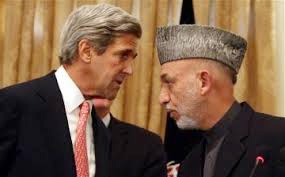Newspaper Article 20/03/2017
As the Summit correlated scope of Connectivity with Regional Prosperity, the discussion was concluded at the end note of doubling intra-regional trade in the next five years and promoting connectivity. The ECO member states have huge scope of cooperation in trade, transport and energy sectors however these areas have remained to be unexploited in the past. For instance, the geographical proximity these states share is an added advantage as they are closely linked and can share transit passages for economic activities in future. However, there is still time in developing such transit passages in a manner that they can contribute to the national economies.
The ECO Summit was widely welcomed and considered as exceptional ground for collaboration among member states. More so, its successful holding could help create optimism among states of least integrated regions to transform themselves into vibrant regional bloc. As per facts, ECO member states constitute 16 per cent of the world population i.e. 450 million but they generate a meagre two percent of the global trade. The factors that attribute to the lack of cohesion in the ECO region primarily include differences in economic systems, state-to-state relations, bilateral disputes, logistic constraints due to inadequate transport linkages and problems with banking transactions.
And it is certainly bilateral and multilateral relations that affect the functionality of a regional state the most. Similarly, the conflict situation in the region with special reference to Afghanistan also makes the case of cooperation difficult. Afghanistan despite being a land-locked country has the potential to provide important link and transit routes to all ECO member states for economic activities which is unlikely to happen in the current circumstances. For which, there must be an effort that could ensure peace a chance to prevail. Another aspect is the incomplete or slow implementation of projects in the region. Projects such as TAPI and CASA-1000 are the cases in point. These projects could form the basis of proposed ECO Regional Electricity and Energy Market but they have only been limited to the signing of MoUs and Agreements up till now.
With major emphasis on economic development, a Trade Agreement (ECOTA) was also signed in July 2003 which is yet to be ratified by all countries. The agreement basically proposes removal of trade barriers for intra-regional trade. The area was addressed in the summit and it was said that member states should work to double current level of intra-ECO trade within the next 3-5 years, including through implementation of ECO Trade Agreement (ECOTA) and other ECO trade-related arrangements; as well as identification and elimination of physical and non-physical barriers to this end.
All the member states have adopted three core principles of ECO Vision 2025, i.e. sustainability, integration and creation of conducive environment to emphasize upon the need to augment cooperation in the areas of trade, transport and connectivity, energy, tourism, economic growth and productivity and social-welfare and environment as identified in Vision 2025. An affirmation in the form of ‘Islamabad Declaration’ was also presented to envisage a future that sees the bloc achieve economic connectivity and assert its influence on a global scale. The implementation of this vision and declaration hold a primary importance as the proposed ideas could be the real manifestation of the spirits member states observe for regionalism. In this regard, two major developments occurred during the Summit. First, with specific emphasis on connectivity, the vital China-Pakistan Economic Corridor (CPEC) was considered a project with enough potential to connect Central Asia, Iran and eventually all the ECO member states together. For instance, land routes provided by CPEC would help enhance trade activities in the region. More so, Gwadar as part of CPEC would be an opening to approach global markets. In the presence of already outlined projects such as TAPI and CASA-1000 alongside CPEC, a web of economic, trade and energy connections can be built which also suits the ideas proposed under Islamabad Declaration and ECO Vision 2025.
Second, the success of ECO Summit in the backdrop of cancellation of SAARC summit has also negated the propaganda regarding Pakistan’s isolation in the region. Rather, the summit brought ECO as a strong diplomatic front for Pakistan to grasp maximum support of the Muslim world. Pakistan must now ensure that the infrastructure and connectivity projects that it has undertaken are completed on time to meet the goals of this ECO conference. It is through better relations among states, effective trade ties, better collaboration and collective reach to global market that could help enhance the effectiveness of this organisation.
Article originally published in Pakistan Observer on March 18, 2017.
Disclaimer: Views expressed are of the writer and are not necessarily reflective of IPRI policy.


